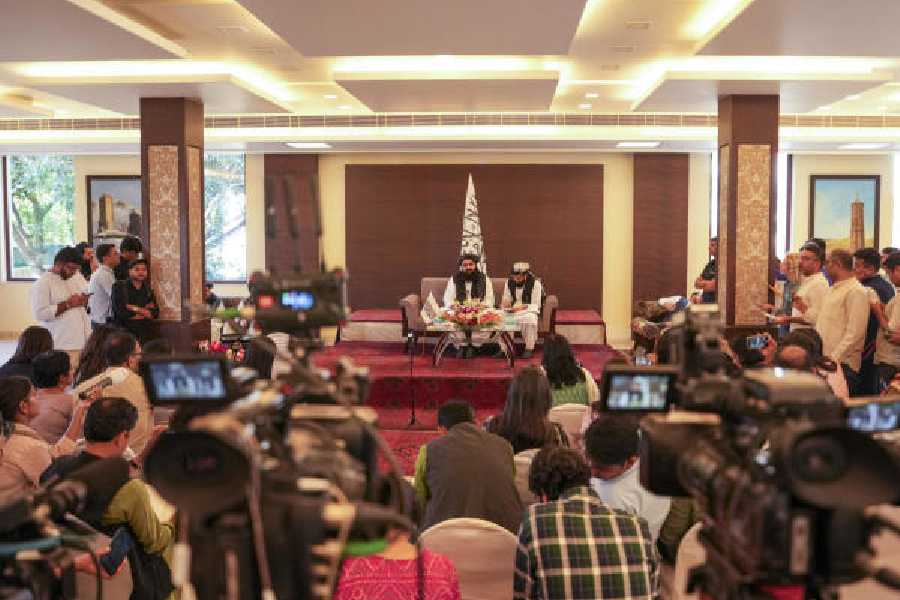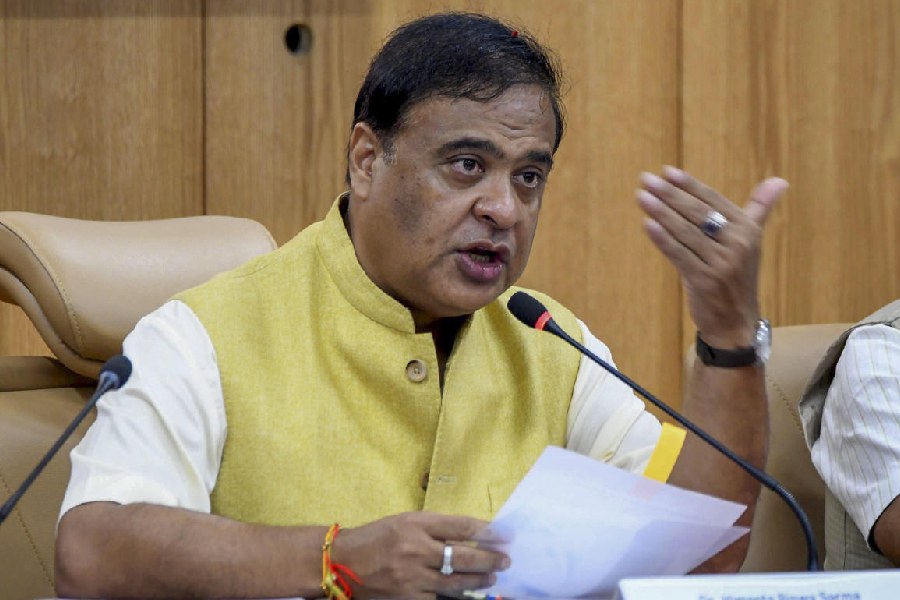Visiting Afghan foreign minister Amir Khan Muttaqi held an open-for-all media interaction on Sunday, seeking to tailor the optics to his claim that everyone’s rights are protected in Afghanistan after the backlash over the exclusion of women journalists from his first media conference here on Friday.
Anyone with a media identity card could walk into the news conference at the Afghan embassy on Sunday afternoon. The security personnel waved in everyone with a cursory look at ID cards, in sharp contrast to Friday when they diligently checked the list of names, all men.
Male reporters, who were criticised for their silence on the exclusion of women journalists, made way for the women during Sunday’s meet and suggested they sit in the front row.
The first question Muttaqi had to field was about the exclusion of women reporters from the Friday briefing. “It was organised on short notice, and a short list of journalists was invited. The participation list was presented, and it was very specific. It was more of a technical issue, and no other problems in that regard. Our colleagues had decided to send invitations to a specific list of journalists, and there was no other intention other than that,” Muttaqi replied.
For the most part, the news conference revolved around women’s rights in Afghanistan and the escalating tension between Pakistan and Afghanistan along the Durand Line since Muttaqi’s visit to India. His opening remarks were essentially a repetition of what he had said on Friday about the bilateral engagement with external affairs minister S. Jaishankar and the official delegation.
Asked why Afghan girls and women were being barred from schools and educational institutions when other Islamic nations educate girls, Muttaqi said: “Currently, at this moment, we have 10 million students attending schools and other educational institutes, of which 2.8 million are women and girls. In religious seminaries, these educational opportunities are all the way to the graduation levels, the highest levels…. There is only a limitation in specific parts, and that does not mean that we oppose education. We have not declared it religiously ‘haram’, but it has been postponed until second order.”
The Taliban often uses “postponed till second order” in relation to gender rights, seeking to ward off criticism with the argument that there is no finality in the decision. However, faced with persistent questions on the rights of women and girls’ education, he asserted that the owner of a house knew how to manage his premises.
“In Afghanistan, the most important need was to end the war and restore peace. We ended the war that had been going on for over four decades and restored peace in four years. We have adopted such policies that will slowly bring change so that no conflict arises in future. We have to carry everyone along with us and make policies accordingly,” he said.
He said the peace in Afghanistan was proof that the policies were working, seemingly borrowing a leaf out of the book of many authoritarian regimes that draw legitimacy from the absence of criticism.










